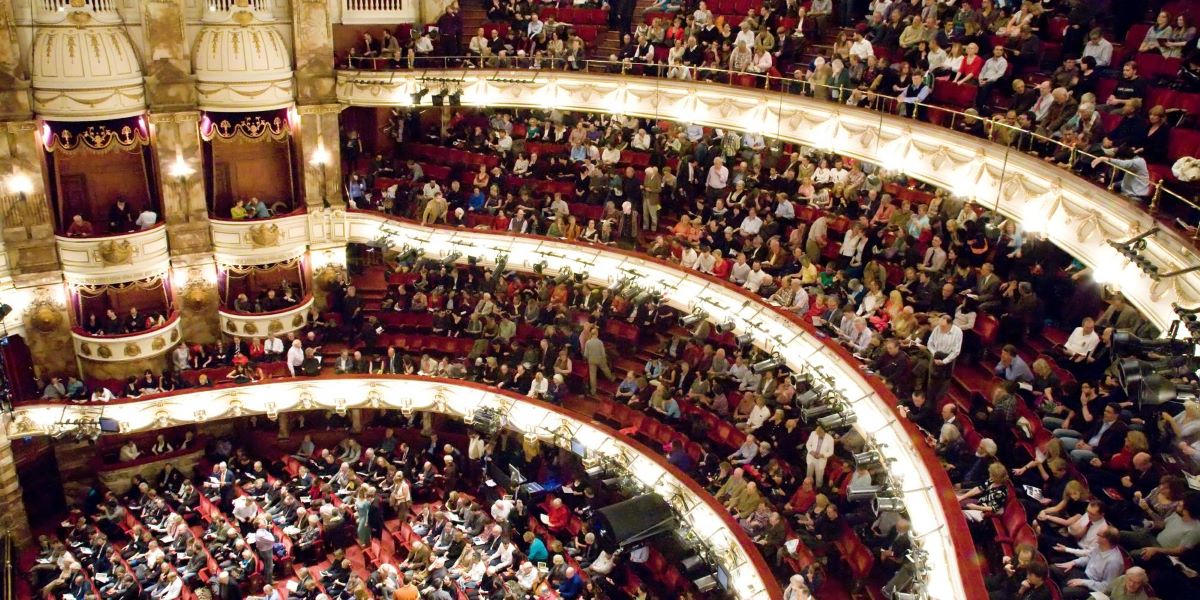English National Opera (ENO) is set to receive £11.46mn of National Lottery funding for the next financial year, starting 1 April 2023.
This follows a successful negotiation with Arts Council England (ACE), after the council withdrew its funding for ENO in November of last year, having removed the opera company’s status as a National Portfolio Organisation (NPO).
This new investment will help sustain a programme of work at the ENO’s home, the London Coliseum, while at the same time help the company start planning for a new base outside London by 2026. However, it represents a 9% drop from the ENO’s previous funding.
The delay in confirming the investment has also had knock-on effects for ENO’s plans for its forthcoming season. This includes the postponement of a number of new productions, as well as the next instalment of its ambitious staging, in partnership with New York’s Metropolitan Opera, of Wagner’s epic Ring Cycle (1876) in full, which was due to continue with a new production of Siegfried, the third work in the four-opera cycle, in 2023.
However, the funding will allow the company to honour many of the contracts of the hundreds of freelancers it hires every year, and enable it to continue to offer subsidised tickets. The investment will also allow the organisation to continue the award-winning ENO Breathe programme for Covid survivors, available via 85 NHS Trusts, and Finish This, a music-making programme available in over 200 schools across the country.
ENO said in a statement that it remains “concerned that this only gives audiences and our workforce one year’s reprieve”. Further investment for 2024-26 is available in principle, subject to discussion and application.
Stuart Murphy, CEO of the English National Opera, commented: “We are pleased to have agreed £11.46mn of funding from Arts Council England to take the ENO through to 1 April 2024. This funding level for 23/24 will allow us to continue to make incredible opera available for everyone. Negotiations now turn to investment for 2024-26, which, in opera planning terms, is imminent.”
The investment will allow ENO to undertake initial development work on a new business model from 2026-27 which will outline the level of public-facing work it plans to deliver both outside and within London; to deliver an analysis of options for the future use of the Coliseum; and provide an outline of the revenue and capital funding needed to transition from the current to the new business model.
ENO is working with ACE to reach an agreement by the end of March this year on a further two years’ funding. An overall three years of investment would help the organisation move to a model where it can deliver an innovative opera programme from a base outside London while continuing to perform at its London Coliseum home. The shared ambition is for ENO to be in a strong position to apply to the Arts Council’s National Portfolio of funded organisations from 2026, from a new base outside London.
The company said that it still doesn’t know why its status as an NPO was removed by the Arts Council, “despite us meeting or exceeding all the criteria they set”.
“While we fundamentally disagree with ACE’s decision to remove the ENO from the NPO list having met or exceeded all success criteria laid down, we nevertheless continue discussions with ACE in good faith and look forward to agreeing funding levels for 2024-25 and 2025-26 which would allow us to continue to deliver the best of the ENO for out-of-London audiences – at a level London audiences have experienced for almost 100 years,” Murphy added.
Image
English National Opera has secured Arts Council funding for the 2023-24 financial year, allowing it to continue its work at the London Coliseum (Karla Gowlett).

